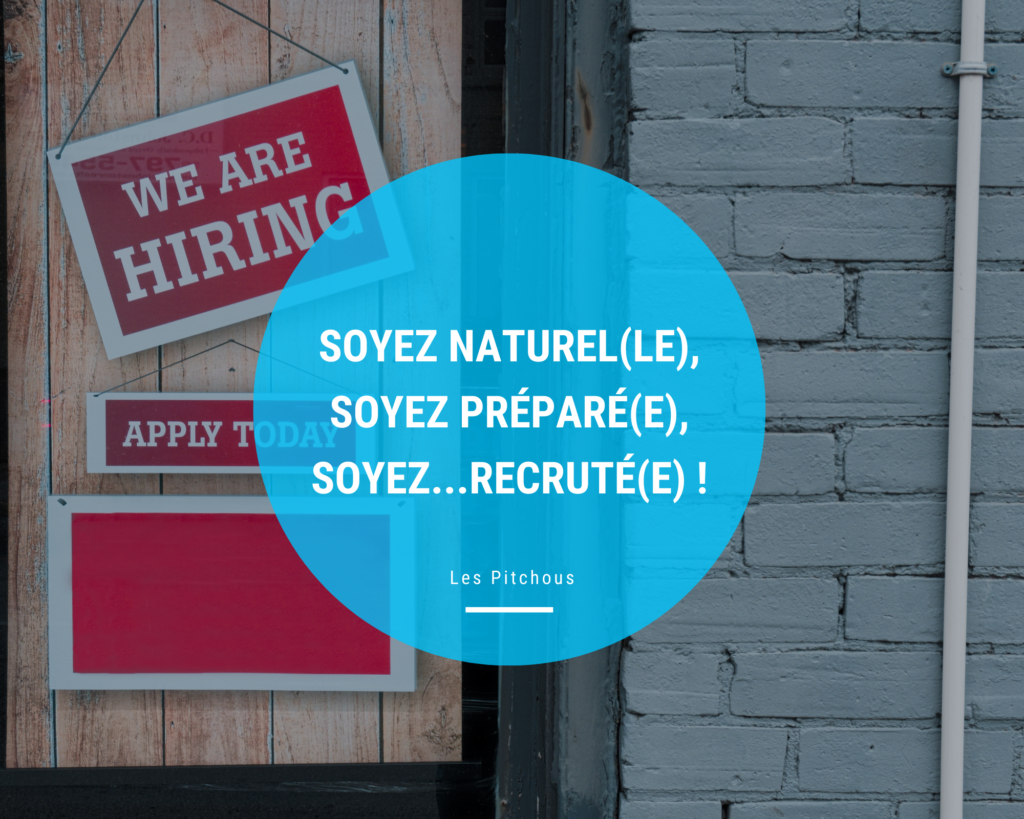How to succeed in a job interview
- Home
- How to succeed in a job interview

You've finally got the job! You've got your fingertips on the job of your dreams. But you still have to pass the job interview.
And then it's panic time! But rest assured, nothing is insurmountable. To succeed in a job interview, it's all about preparation. A well-prepared interview allows you to feel more at ease on the day and to master every point of the subject.
Here are some tips on how to prepare for your valuable interview successfully!
1. Take time to prepare for your interview
Without stopping your job search, spend some time preparing for the interview you have landed.
Firstly, gather together the information relating to the company and possibly, if it is not an unsolicited application, the advertisement to which you are responding. This is basic, but many people, after answering several advertisements, do not know which position they have applied for when they arrive at the interview. So put yourself in the right context.
Tip: Keep an up-to-date Excel spreadsheet or Word file. Write down the name of the position you are applying for, the date, the name of the company and the link to the advert if there is one. This will ensure that you are not lost if you have a positive response.
2. Find out about the company that is recruiting
This is the ABC of the interview. You have to learn about your potential future company. Visit their website and their social networks. You need to know all the products or services it offers, as well as its core business. You should also find out if the company is involved in any associations or causes.
Also, find out about the people you will be interviewing with. Don't hesitate to look at their LinkedIn profile if there is one, as well as the "Team" section on the website. Knowing your audience can be an advantage for you.
This research is necessary because it proves your motivation, your knowledge of the sector and the job. This will potentially allow you to be more reactive when recruiters ask you questions about the company.
This little survey will also allow you to see if this company attracts you by its activity, its style, its leader, its reputation and the human relations it maintains. Don't forget that it works both ways. To be a fulfilled and motivated employee, you must like your future company.
3. Analyse your CV and put together your assets for the job
Read your CV carefully and find your best experiences. Know how to argue and sell them. You should know by heart every situation that works in your favour in these past experiences. Do not neglect your disappointments and the negative points of past experiences. This will allow you to stop experiencing what you no longer want and to be completely transparent with your future employer.
Then find your strengths and weaknesses while being objective. Don't hesitate to write everything down so that you don't forget anything.
Make sure you have at least 3 or 4 qualities and defects. All of this, while being constructive and caring.
Move on to your personality. What 'extra-curricular activities' have you indicated? Do they demonstrate that you have the qualities required for the job? Are there other things in your life that would better demonstrate these qualities? Also, talking about your hobbies and passions can focus the interview on a common activity with your future employer!

The key to success is preparation!
4. Prepare your pitch, practice speaking
Once you've sifted through your CV and listed the positive and negative elements, it's time to get down to business! In other words: practice communicating orally.
Start by summarising your educational and professional background in 2 minutes maximum. While highlighting your assets: Erasmus internship, expatriation, work experience, etc.
Practice speaking fluently, not too fast or too slow, pausing to breathe. You can record yourself on video on your smartphone to improve. Alternatively, get someone close to you to play the role of your future employer.
Finally, practise answering about ten classic questions often asked in job interviews. This will prevent you from being thrown off balance in an interview by a question you have not thought of. And even if you are not asked exactly these questions, you will learn to talk about yourself and to know how to "sell" yourself.
Don't forget to add concrete examples to illustrate your points. Show your achievements (portfolio, tender, model etc.) if possible. Finally, if you have a letter of recommendation that supports your qualities and skills, it could add value to your presentation.
5. Prepare all your belongings for the big day
The day before, not the day of, prepare your belongings (clothing), and any necessary papers to take with you.
Have several CVs ready to give to the interviewers, letters of recommendation and notes taken in preparation for the interview.
Don't forget a notebook and a pen to take all the necessary notes during this moment of exchange.
You are now ready for this interview. Take a deep breath, you are going to ace it!
To find all the Pitchous articles, click here!
Would you like to discuss this topic? Follow us on LinkedIn.
-
Sophie Fromont
-
I am Sophie, Account Manager at Les Pitchous. I have a passion for digital, marketing and art, and tried my hand at several jobs before I really found my way.
I also thrive on travel. After living in different countries, I settled in Canada, in Montreal. Adapting to a new environment stimulates me on a daily basis and pushes me forward.
I have been enriched by all these different experiences and cultures and today I can say that I have grown and been enriched by these beautiful experiences. That's all I can wish you, and also to be happy. Because life is more beautiful when you are happy!
- The Ultimate Guide to the Amazon Marketplace with the Product Opportunity Explorer

- Working with Amazon consultants - Testimonial - Groupe Marie Claire x Les Pitchous

- The story of 1% for the planet and Les Pitchous

- Team building activity - Sled dogs

- The importance of Amazon reviews and how to get them fast?

